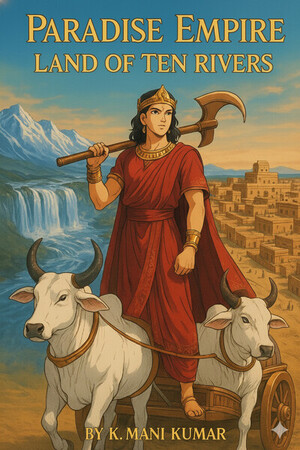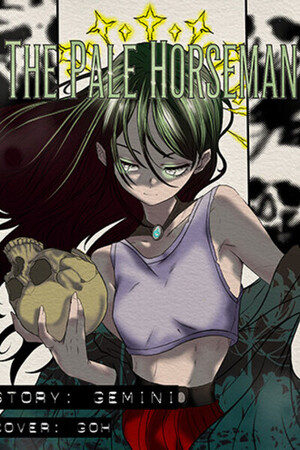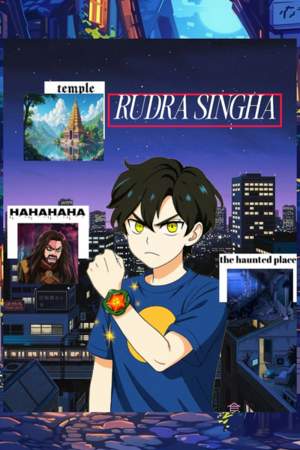Chapter 4:
Chapter 2: That One Decision — Part 2
The Paradise Empire: The Land of Ten Rivers season 1 part 1
Chapter 2: That One Decision — Part 2
(Scene: Midday. The sun shines over the emerald green fields of Manūrū. The sound of bullock hooves thunders across the narrow mud paths.)
Vīra’s chariot — the sleek, racing bullock cart pulled by two majestic white humped zebus — sped down the village road.
Dust rose behind it like a banner of victory. Beside him sat his lifelong companion, Tim’mayya, clutching tightly to the side railing, his hair blown wild by the wind.
Tim’mayya: “Vīra, slow down a bit, you’ll make me fly out of this cart!”
Vīra (laughing): “Then hold on tighter, Tim’ma! The bulls want to run — let them feel the freedom of Manūrū’s wind!”
The cart raced past paddy fields where farmers paused from work, raising their heads to smile at the two young men. Women washing clothes by the lake lifted their wet sarees and waved playfully. Children playing near the temple shouted in joy, chasing the rolling dust cloud that followed the bulls.
The sight of Manūrū spread like a living painting — coconut trees lining the lakes, granaries stacked with the golden yield of harvest, the gentle hum of temple bells mingling with flute melodies from distant houses. This was not just a village; it was a world of its own — ancient, breathing, filled with stories that would one day be legends.
As they entered the central square, Vīra slowed his bulls. The grand temple of the village deities stood there — Manūrāyya and Manūramma, guardians of the land. Oil lamps burned bright even in the day, and devotees were singing and conch shells sounding through the air. As they rode past, Vīra touched his chest in reverence and whispered,
“Manūrāyya, protect this land as you always have. Manūramma, keep my parents healthy.”
Tim’mayya (smiling): “See, Vīra? Even gods might be watching your madness from that temple today.”
Vīra: “If they are, I hope they’re laughing too.”
They passed the large stone house of the village chief, Venkatayya, standing at the right side of the main street — its walls carved with murals of old wars and harvest processions.
After that, the road curved toward a smaller but warm-looking home built with clay and lime, with a thatched roof, blooming tulasi plant at the entrance, and two wooden ploughs leaning against the wall. It was Vīra’s home.
The bulls stopped there, snorting. Vīra jumped down, and untied them, patting their necks lovingly. Tim’mayya followed, still catching his breath.
Vīra (softly): “You did well today, my warriors. Now take some rest.” he murmured running his hand along the hump of the lead zebu.
He loosened the ropes, led them to the cowshed where the family’s gentle brown cows were tied, and secured them beside the trough. The smell of hay and wet earth filled the air.
Then he washed the dust from his arms, feet, and face at the stone basin near the doorway. The water ran down in thin silver threads.
Tim’mayya followed, imitating him—splashing water on his face, muttering, “By the gods, your bulls run like the wind, Vīra.”
A brief smile flickered across Vīra’s lips as he stepped into the cool shadow of his home.
They walked in. Inside, the scent of incense and cooked rice filled the air. Vīra’s father, a strong man with silver in his hair and a commanding tone, sat near the door polishing an old bronze spear — a relic from his youth. His mother was beside the fire, stirring a pot of lentils, her face calm but sharp enough to notice every detail about her son.
Father: “There you are! Where were you, Vīra?”
Vīra (nervous grin): “Me? I just went with Tim’mayya to Kīlūru, Father — you told us to bring those pots and tools, remember?”
Tim’mayya: “Yes, uncle! It was tough to find proper quality. You know how the market is during festival season!”
Father (glaring): “I wasn’t asking you, boy. I’m asking my son. Why so long, Vīra? Tell me truthfully — you didn’t get into some new mess again, did you?
Vīra straightened, meeting his father’s eyes.
Vīra (firmly): “No, Father. I didn’t fight anyone. I saved someone.”
Father: “Saved? From what now?”
Vīra: “The chief’s goods — Venkatayya’s cart was attacked on the way. I stopped the thieves. If not for me and Tim’ma, those goods would be gone. Rangayya himself almost got hurt.”
His father’s expression changed from anger to shock. His mother froze.
Mother: “What? Thieves? From where?”
Tim’mayya: “Auntie, they were from Avunūru — the neighboring village!
Vīra’s mother gasped and rushed forward, touching her son’s face and shoulders as if checking for wounds. Mother: “Are you hurt, my dear?"
Vīra (smiling): “I’m fine, Mother. Really.”
Tim’mayya (excitedly): “Nothing fine about it, Auntie! Those thieves had bronze knives! One even had a scythe! If you saw how Vīra fought them—”
Father (shouting): “Enough! Don’t glorify his recklessness!”
He stood up, pointing his finger at his son. His voice rose again — rough with worry, disguised as anger.
Father: “Fighting thieves?! What are you thinking, boy? You could’ve been killed! Don’t you ever do something like that again!”
Vīra (frustrated): “So I should’ve just watched them steal from our village chief? That’s not who I am, Father!”
Father: “Every time, it’s the same! You run into trouble, fight someone, come home with heroic tales that don’t fill our granary nor our stomachs! When will you learn to do something useful?” He continued, “Why do you do everything except something useful! You think heroics fill our storehouse?”
Vīra (cutting him off): “Useful? Father, look around. We have land, cows, coconut trees, a house — small, yes, but peaceful. Mother weaves, I work, you guide us. Isn’t that enough for a good life?”
Father (slamming the spear on the floor): “Enough? That’s what you call life? Just sitting in this village until old age takes you? Look beyond these fields, Vīra! The world outside is changing faster than our bulls can run!”
He walked toward the doorway and pointed toward the front of their house, and everything the surroundings of the house and continued
Father: “ and you think this is Peaceful? You think this life? You think a roof and a few cows and bulls make a man great? Look around you, Vīra. The world is changing.”
He walked outside and pointed toward the western horizon.
Father: “Beyond these fields lies Maniyanūru — the city of markets, gold, and foreign merchants. Every year, during the business season, young men from every nearby village go there. They sell their goods, learn the ways of trade, earn wealth. Many who once had nothing now own fine houses of stone and wood. Some live in the lower city among traders and craftsmen. Some climb higher, into the middle city, where officials, scholars, and noble merchants live. A few even earn enough to reach the upper city, where gold roofs shine and foreign caravans arrive.” Some sail to foreign lands and never return.
He turned back, eyes burning with passion.
“That is the power of trade, Vīra! That’s the future. Look at us — we are stuck here while others grow richer every year.” That is the world now, Vīra! But you — you fight thieves for pots and come home empty-handed!”
Vīra (quietly): “Maniyanūru again… why does that city’s name keep following me?”
Father: “Because it’s your future, if you choose it! Look at our neighbors — every young man your age is going this harvest season. Why can’t you go too?”
Vīra: “You want me to leave the village?”
Father: “Yes! Go, trade, earn something for your family before it’s too late. I’m growing old. We can’t depend on Tim’mayya forever.” He added quietly, his eyes narrowing, “Who knows if this Tim’mayya is selling our items for a higher price in the city and giving us less in return”
Tim’mayya (defensively): “Excuse me?! Uncle, I always sell fair! You know me since childhood. How can you think—”
Father (sarcastic): “Oh, I know you — and your father. You both have tongues of honey and pockets of stone!”
Tim’mayya (throwing his hands up): “Auntie! Tell him something before I lose my respect here!”
Mother (gently): “Enough, all of you. This argument helps no one.”
But Vīra wasn’t listening anymore. His mind was repeating one word — Maniyanūru.
Then he looked up sharply, rubbing his forehead.
He muttered to himself,
“That same name again. That city keeps coming back to me. Why does it sound like it’s calling me?”
Vīra: “Fine! If that’s what you want, Father, I’ll go. This year, I’ll go to Maniyanūru and see what it’s all about. But don’t expect me to come back with houses full of gold and silver!”
Tim’mayya (grinning widely): “Wait — you’re actually coming?! Finally! I’ve been traveling there since I was a child. I know every market and every inn from the lower city to the mid-city plazas. My father used to handle everything, but since he grew weak three years ago, it’s been me. Don’t worry, I’ll guide you.”
Father (smiling proudly at last): “Finally, you made a good decision, Vīra. One that might help this family — and your own future. Remember, the city rewards those who act, not those who dream.”
Vīra looked at his parents, then at Tim’mayya. His expression softened, but his eyes seemed distant — as though he was hearing something beyond the room, beyond the village.
Vīra (softly, almost to himself):“A good decision, you say? Maybe. But I don’t know why… it feels like the city itself is calling me, calling me toward something I can’t yet see.”
The wind outside picked up, rustling the coconut leaves. The smell of incense from the temple drifted in again, mingled with the smoke from his mother’s hearth. The day began to darken — as if the sun itself paused to listen to this one conversation that would change everything.
(Narration shifts — the voice of the old Grandfather echoing softly.)
“And that, my boy, was how it began. One decision — that’s all it takes to turn the wheel of destiny. One choice can shape a man, a family… or an empire. That day, young Vīra made his choice — to leave the quiet soil of Manūrū for the roaring heart of Maniyanūru.
He didn’t know that the footsteps he was about to take would echo across centuries… that the fate of the Land of Ten Rivers itself would turn with him.”
The voice fades. The camera pans upward, following the sound of conch shells from the temple. The sky above Manūrū glows orange and red. The bulls snort in the distance, as if impatient for a new journey.
Chapter 2 Ends.




Please sign in to leave a comment.